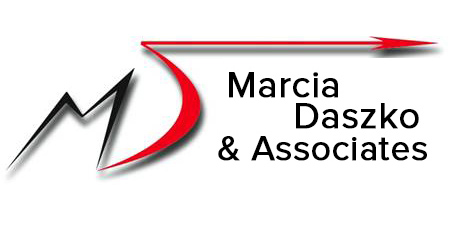Marcia's Leadership Q and A's: Tips to Reduce Fatigue, Stress, and Burnout
/Q. After years of remote work, some of our leaders and virtual teams are feeling exhausted. How can we revive all of us?
A. Zoom fatigue (from any platform) has become an unexpected side effect of remote work. There are countermeasures team members can take to monitor and reduce fatigue or stress. It also means that you have to implement the tips for reducing the fatigue, not just think about it or think that it sounds like a good idea. It means focusing on a few priorities, not too many and having healthy boundaries for yourself.
Here are a few tips! See what works best for you. Before getting on a Zoom call, take a few minutes to prepare yourself. Get a beverage, go to the restroom, and do some breathing exercises (simply do deep inhales through your nose and long exhales out your mouth) several times. If you’re leading the meeting, prepare an agenda and do a quick review of it as you begin. Start with a focused warm-up. You might ask for people to describe in two words how their weekend was. Ask how they feel today, really; "fine" is not a response. If you ask an open-ended question such as, “How are you or how was your holiday?” you might be 30 minutes into the meeting time before that stops. You may have some meetings that are short and focused on your project status. Vary the meetings: short, focused; longer and idea generating with brainstorming and break outs. Schedule a different time for a luncheon or Happy Hour for the team or employees to join if they choose.
Another tip is to schedule a meeting for 50 minutes, not 60 minutes so you have breaks and meetings aren’t back-to-back. People can refresh, summarize notes, or prepare for a few minutes for the next meeting. Throughout the day, schedule breaks for 15 minutes, 30 minutes, or an hour. Get up and move away from the computer. Change the scenery by going to a different room or go for a walk around your yard or around the block.
Within 30 minutes, you may be able to take a short drive. Periodically, give your eyes a rest by looking away from the screen. Blink more often. Look across the room; look outside and to the horizon. Take a nap for 15 minutes or at lunchtime to refresh. The most important thing is to take breaks, walk around, do some self-care, exercise, and change your scenery. If you tend to sit at your computer and be on calls from four to eight to ten hours a day, the stress and burnout will creep into your psyche. This is not sustainable or healthy.
Leaders need to model healthy behavior. And they need to create a healthy workplace. If there are too many demands on team members, meet and discuss together how to make improvements. It's time for a much needed pivot for you and your team members.






